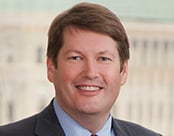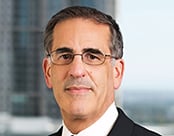Union Organizing, NLRB Election and Decertification Petitions Vedder Service
Maintaining Union-Free Status. Vedder Price has found that effective, preventive counseling and supervisory training can identify and resolve employee relations problems so that a situation never deteriorates to the point at which a union organization drive is triggered. We have many attorneys who not only can provide legal guidance but also are adept at training and working with supervisors to polish and enrich their people skills, heighten their sensitivity to employee concerns and attitudes and alert them to the early warning signs of a union-organizing drive. We also conduct employee relations “audits” to examine both hourly and supervisory employee morale, two-way communication and employee relations generally. In a relatively brief period, we can identify employee and supervisory concerns and employee relations issues or problems, and we can work with your management team to suggest realistic actions that should both improve morale and help avert a serious, costly union-organizing effort. The expense of such an “audit” in terms of both dollars and valuable management time is negligible when compared with the cost of overcoming a union-organizing drive.
Campaign Development. If a representation petition has been filed, we would work with your management team to develop campaign themes, determine the most effective vehicles for employee communication and prepare a tentative campaign outline and calendar. We promptly analyze relevant union constitutions, bylaws, financial reports, strike reports, election and media reports and any available, relevant union contracts and information from other employers. This effort is greatly facilitated and enhanced by our firm’s extensive experience with virtually all major unions, as well as the experience of our own internal professionals who are skilled in this process.
Supervisory Training. Very early in the campaign, we also meet in a group with the supervisors and local management to discuss and furnish general campaign “dos and don’ts,” answer questions, provide information regarding the election process and motivate them to take an appropriately active and confident role. Employers frequently err by assuming that supervisors fully understand what union representation means to an operation and that they are steadfastly opposed to unionization. We have found that it is well worth the effort to effectively drive these points home, provide real-life examples and shape training so that the supervisors are appropriately motivated.
Employee Meetings. We normally work with the employer to plan a series of small group meetings, which are conducted by appropriate management personnel. Naturally, the number of meetings and subjects will vary. Each subject is addressed by a series of meetings, so as to ensure a small group setting. The first series usually is designed to provide information about such topics as employee benefits, the employer, the local operation and competitive realities. Depending upon the situation, we may recommend that plant management acknowledge that some mistakes have been made but also stress achievements, the difficult competitive realities and that problems can best be solved by working directly with one another.
Subsequent meetings usually deal with such subjects as the facts concerning union representation, including the realities of the lengthy negotiation process; the meaninglessness of union promises; the possibility and impact of strikes; information about union dues, fines, and rules and regulations; and any helpful strike and election information. Communication vehicles and source materials that we might recommend to underscore these points include copies of all or portions of the relevant union constitutions, bylaws, financial reports and court decisions reflecting the applicable union’s efforts to enforce its fines; media accounts of union strikes, violence and corruption; videos, flip charts and other visual aids. Obviously, the use of any or all of these tools must be carefully considered and fully explored with the management team. The effectiveness of such tools depends upon many factors—most notably, the issues, the union and the workforce culture.
Ongoing Counsel. We typically meet individually with local managers and supervisors to monitor their efforts and effectiveness and the campaign’s progress, to answer questions and to provide ongoing guidance, both generally and with respect to developments as they unfold. Written communications in the form of letters, Q & As and supervisor fact sheets are utilized as well. However, it is critical that the personal touch always be maximized and that written communications primarily be used to form a basis for dialogue.
25th-Hour Speech. We normally recommend that management hold its final, captive-audience campaign meeting a day or two before the election. This talk (i) underscores the campaign themes and, among other things, stresses successes/benefits that have been accomplished by working directly with one another and without dues or the risk of strikes, (ii) reminds employees that negotiation is a two-way street, the results of which no one can predict or guarantee, (iii) asks for a chance to complete the job of making the operation the best that it can be, (iv) points out that unions can create barriers that reduce efficiency and impair communication and teamwork, and (v) mentions that there will always be a union around that is ready to take employees’ hard-earned dues money in the unlikely event that they ultimately believe they need a union.
Post-Election. After the election, we meet with management to discuss all issues that were raised in the campaign and how they will be addressed. We thoroughly review the compensation and employee relations program and discuss necessary and desired improvements in the context of what is practical and cost-effective. If the employer desires that we do so, we return (6) to (8) months later to review the employee relations situation for the purpose of avoiding another union-organizing effort.
Primary Contact(s)
Attorneys
-
News
-
July 5, 2022 | Press Release
-
March 28, 2019 | Media Appearance
-
August 27, 2018 |
-
August 20, 2018 | Press Release
-
-
Past Events
-
December 16, 2020 | Webinar
-
-
Publications
-
December 20. 2021 | Article
-
December 8, 2021 | Newsletter/Bulletin
-
November 15, 2021 | Newsletter/Bulletin
-
November 5, 2021 | Newsletter/Bulletin
-
June 10, 2021 | Newsletter/Bulletin
-
February 5, 2021 | Newsletter/Bulletin
-
December 21, 2020 | Newsletter/Bulletin
-
January 8, 2020 | Newsletter/Bulletin
-
December 16, 2019 | Newsletter/Bulletin
-
April 22, 2019 | Article
-





